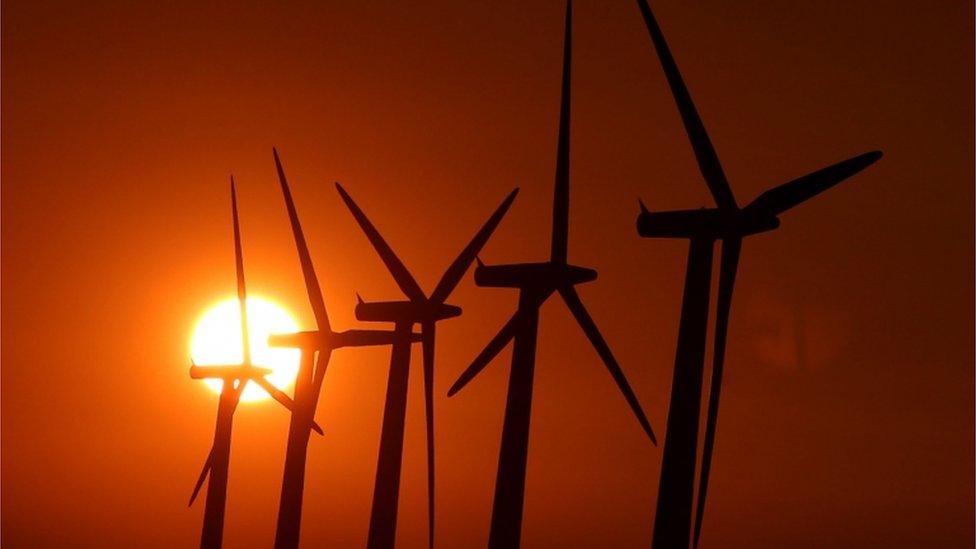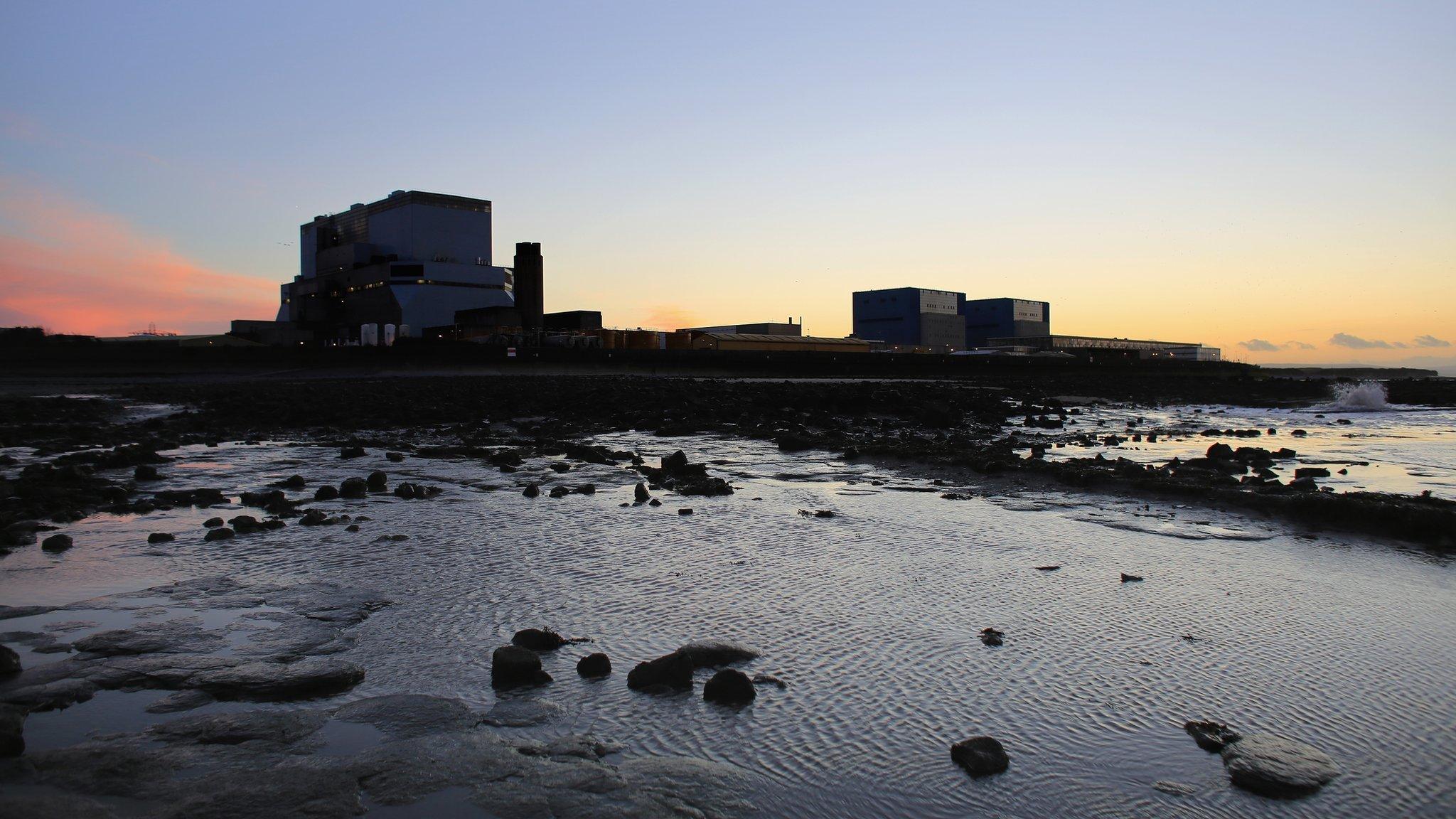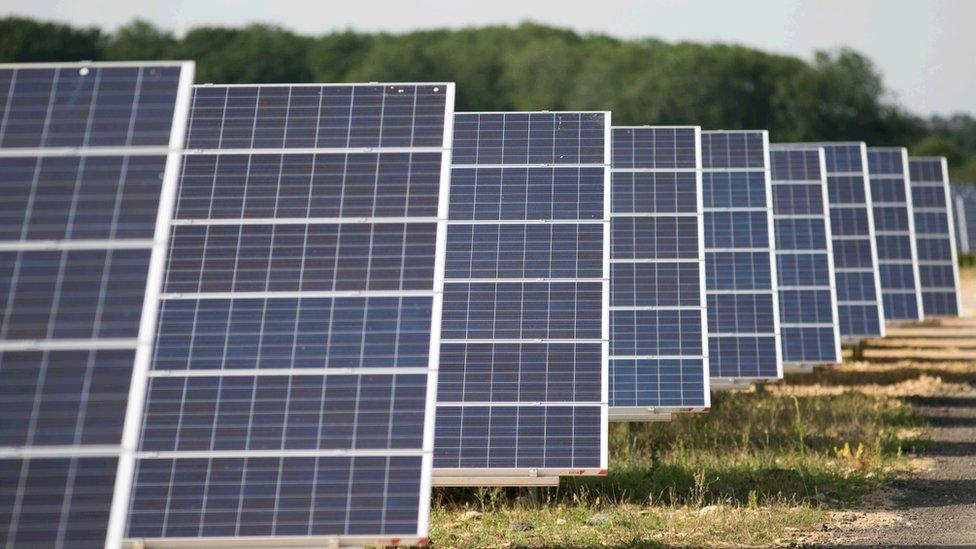UK energy policy 'deters investors'
- Published

The UK's international reputation for a strong and well-balanced energy policy has taken another knock.
It has lost its previous triple-A rating from the World Energy Council (WEC) - a global body representing the energy sector.
The authors of the WEC report said a vacuum in energy policy since the election was deterring investors needed to create new electricity supplies.
But the government said it was still a world leader in energy policy.
It said it was committed to securing energy supplies through nuclear and shale gas.
The criticism from the WEC follows a complaint from the UN's chief environment scientist that the UK was turning away from renewables, just as they were being embraced by the rest of the world in the run-up to Paris climate talks this month.
The WEC report ranks countries on their policies to keep the lights on, bills and carbon emissions down. It says the UK has been a leader in these policies.
But its says the government's drastic withdrawal of subsidies for wind and solar power has deterred investors needed for new energy supplies.
UK ranking under threat
Electricity has become comparatively more expensive, and the UK remains on a "watch-list" over how it will secure its future energy supply.
The report warned the UK faced the run-down of nuclear plants and the closure of coal-powered stations, alongside ageing infrastructure - meaning its ranking is set to fall in future assessments.
It urged the government to ensure consistent policy to secure and maintain investments while reforms to the energy system are being implemented.
Britain still gets an AAB rating from the council and is still in the world's top four. But that may be a let-off, because the report was written before damaging revelations in a leaked letter that the government has misled people over its progress on EU renewable energy targets.
The government denies misleading Parliament to believe that it will hit its mandatory 15% renewable energy target in 2020.
But the letter, external makes clear that the shortfall of approaching 25% in renewables has been hidden from the public - and over several summer months in which subsidies were being cut, journalists were consistently told that the EU renewables targets were still being met.
Energy Secretary Amber Rudd told MPs the government remained committed to the targets, which will be achieved by greater focus on renewable heat and transport, rather than electricity.
She added: "I recognise, as that letter does, that we don't have the right policies, particularly in transport and heat in order to make those 2020 targets, but we have four to five years and I remain committed to making those targets."
A spokesman for her department, commenting on the WEC report, said: "We've made record investments in renewables and are committed to lower-carbon secure energy, such as nuclear and shale gas, which will help keep the lights on for future generations."
Energy analysts are baffled as to why the government is blocking onshore wind and large-scale solar power, as these are among the cheapest options for hitting the renewables target.
The UN praises the UK for its international role on climate, especially in helping developing countries get clean energy supplies like wind and solar.
But the head of the climate negotiations said she noted concern among international allies over recent UK policy changes.
Follow Roger Harrabin on Twitter @rharrabin
- Published21 October 2015

- Published19 October 2015
